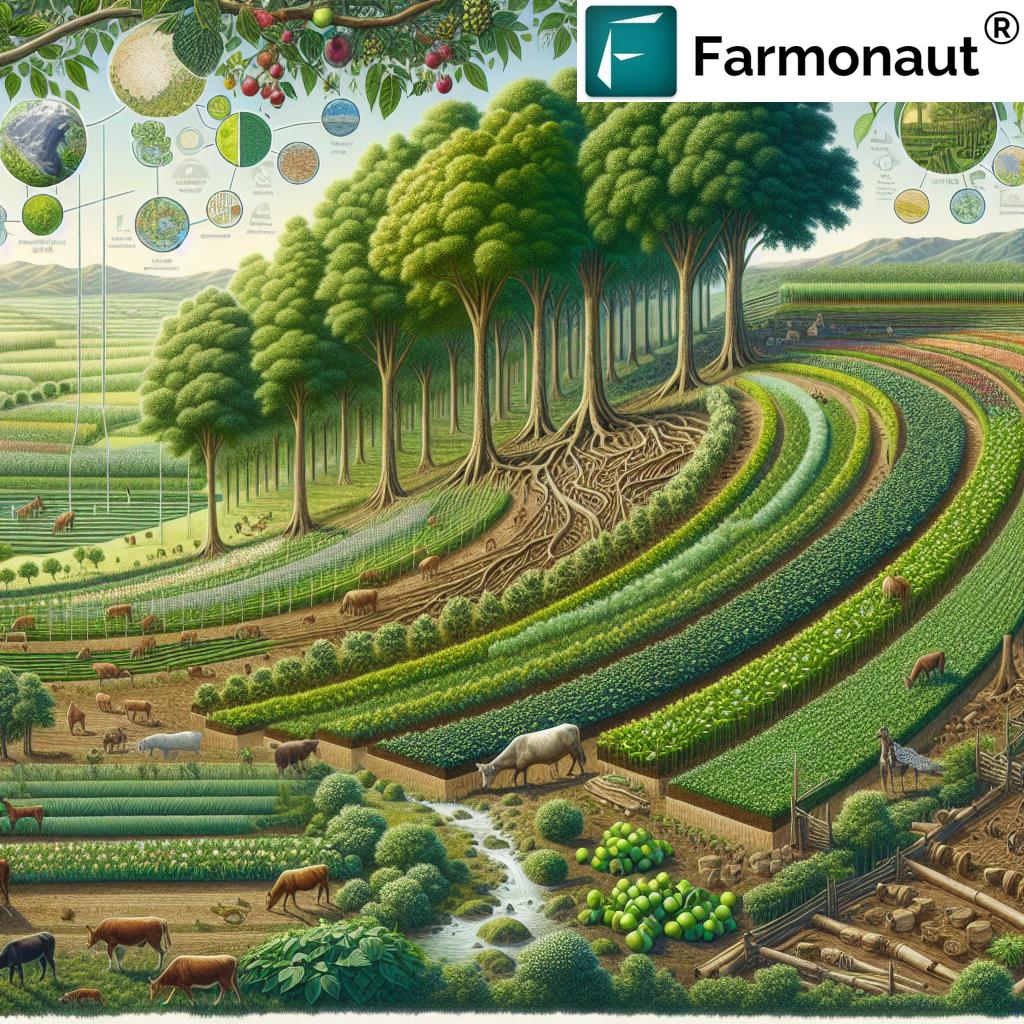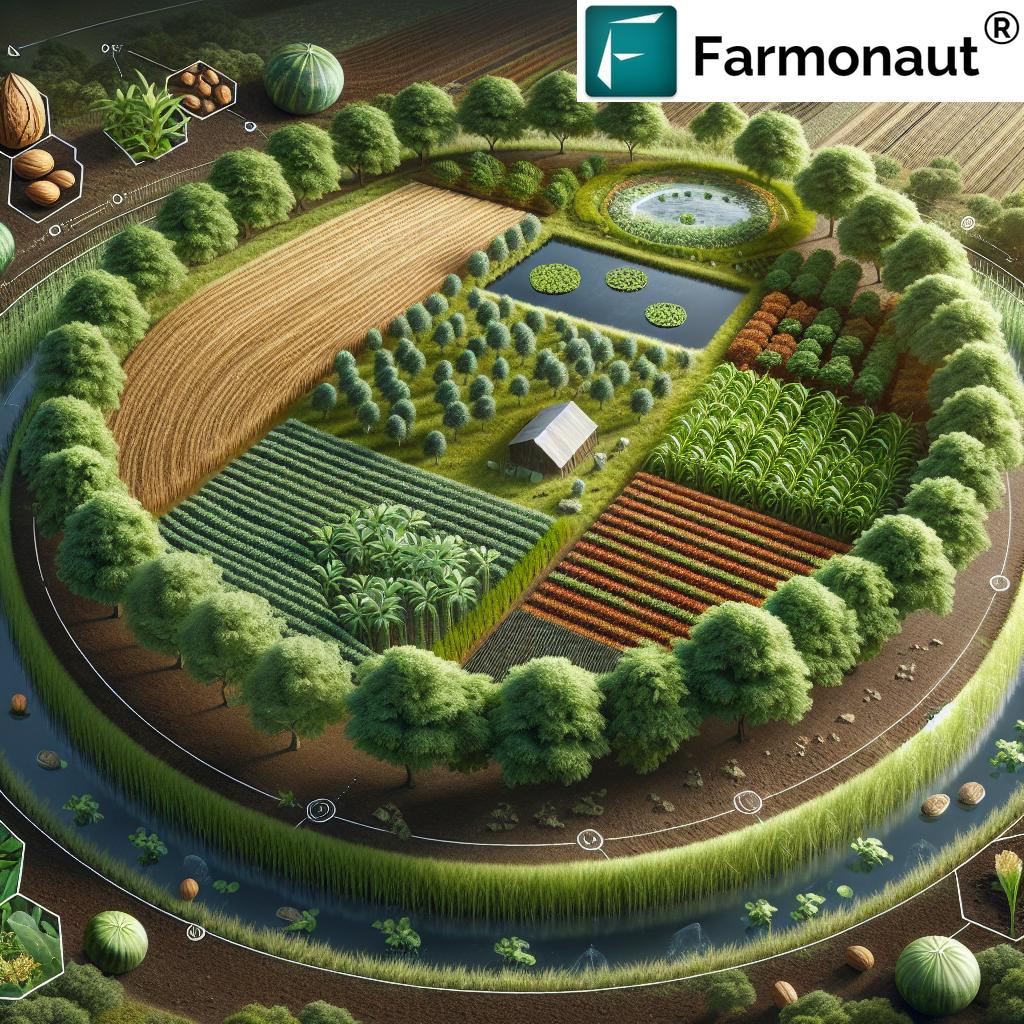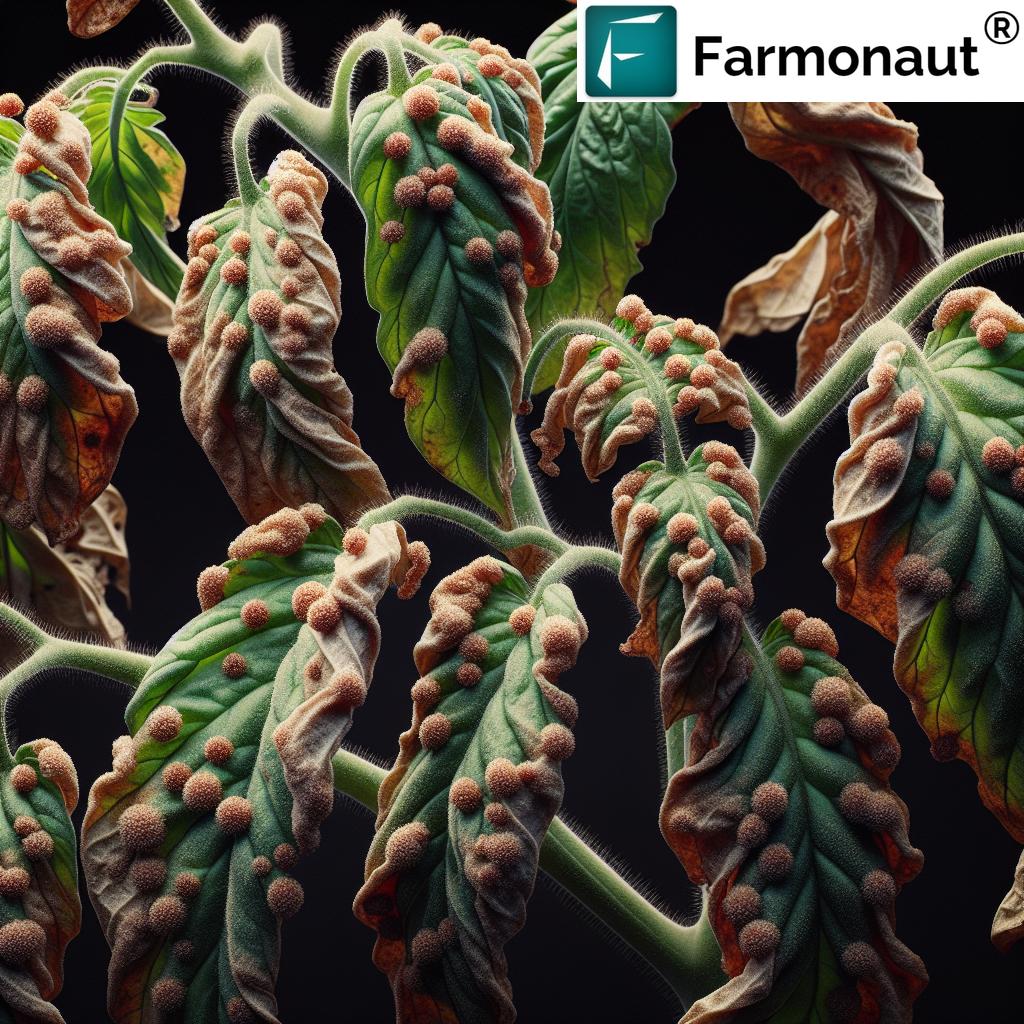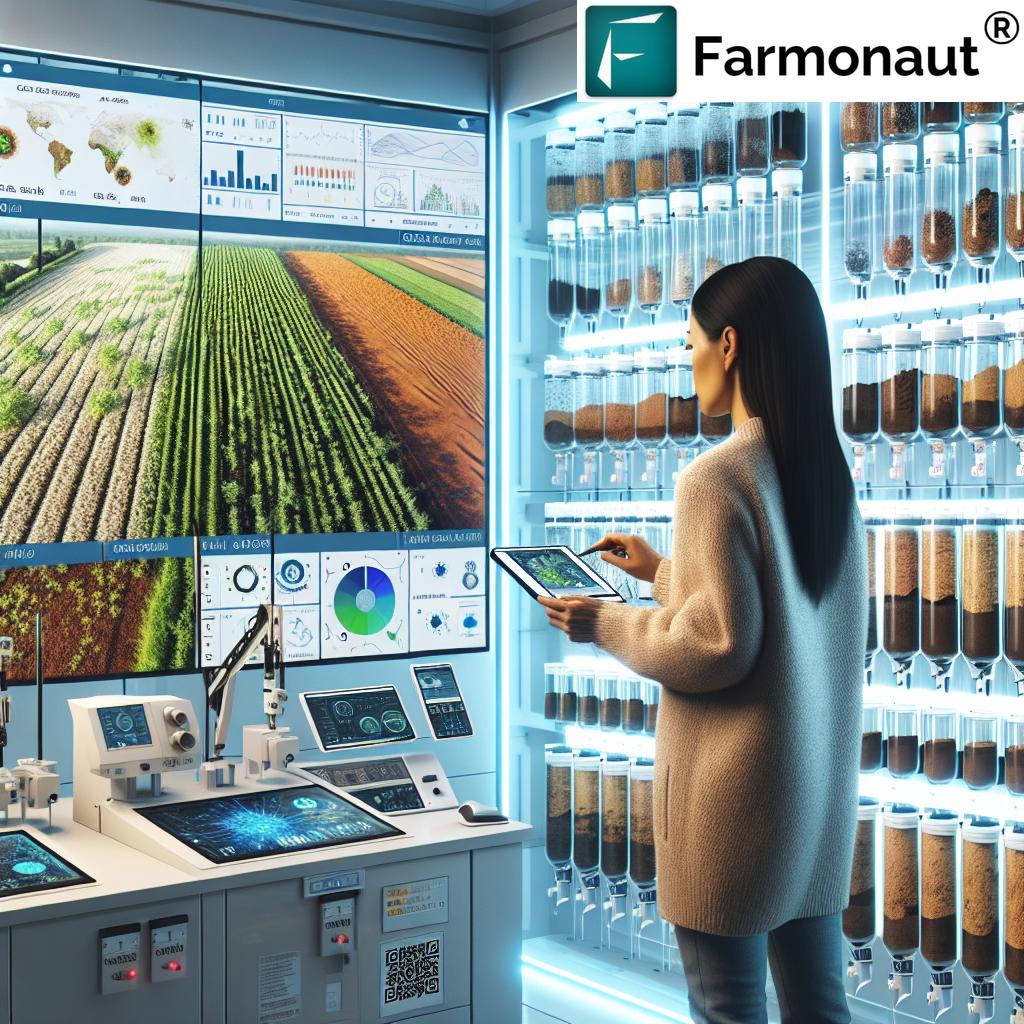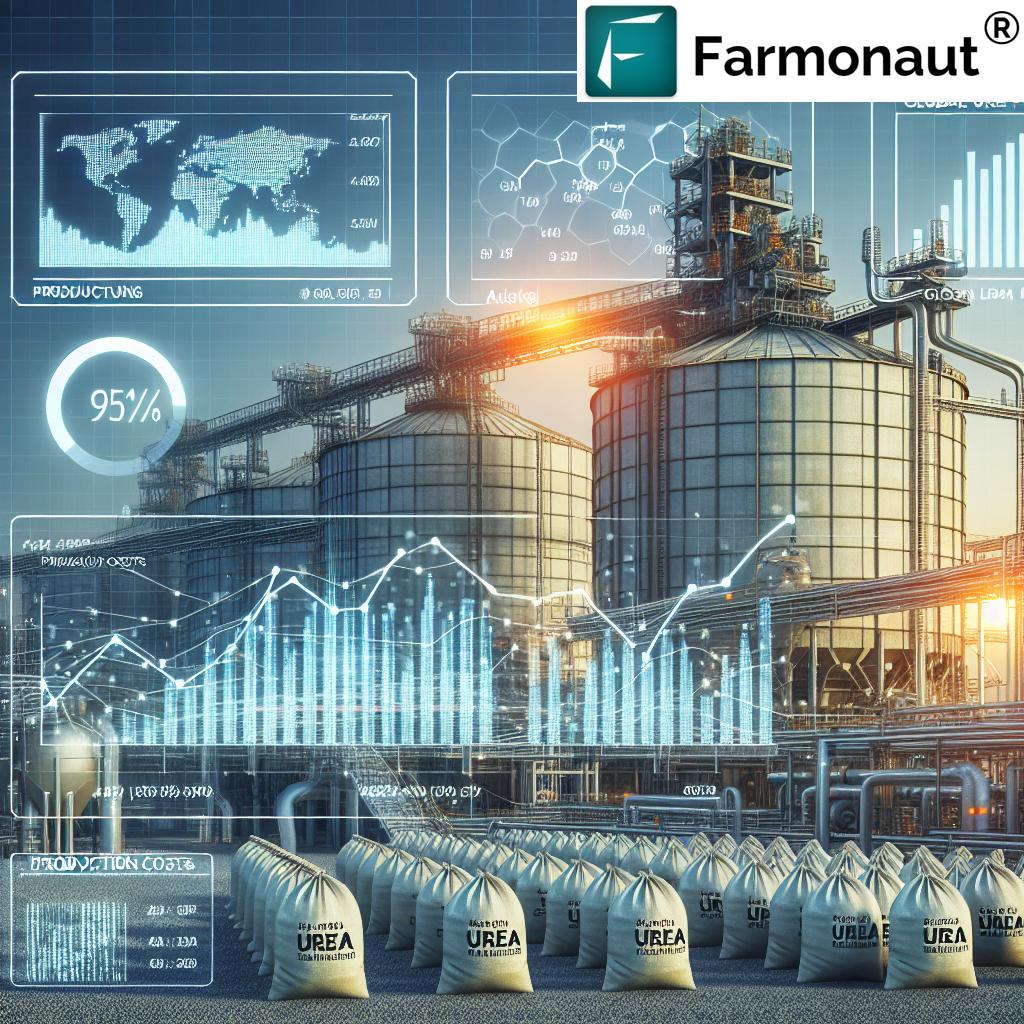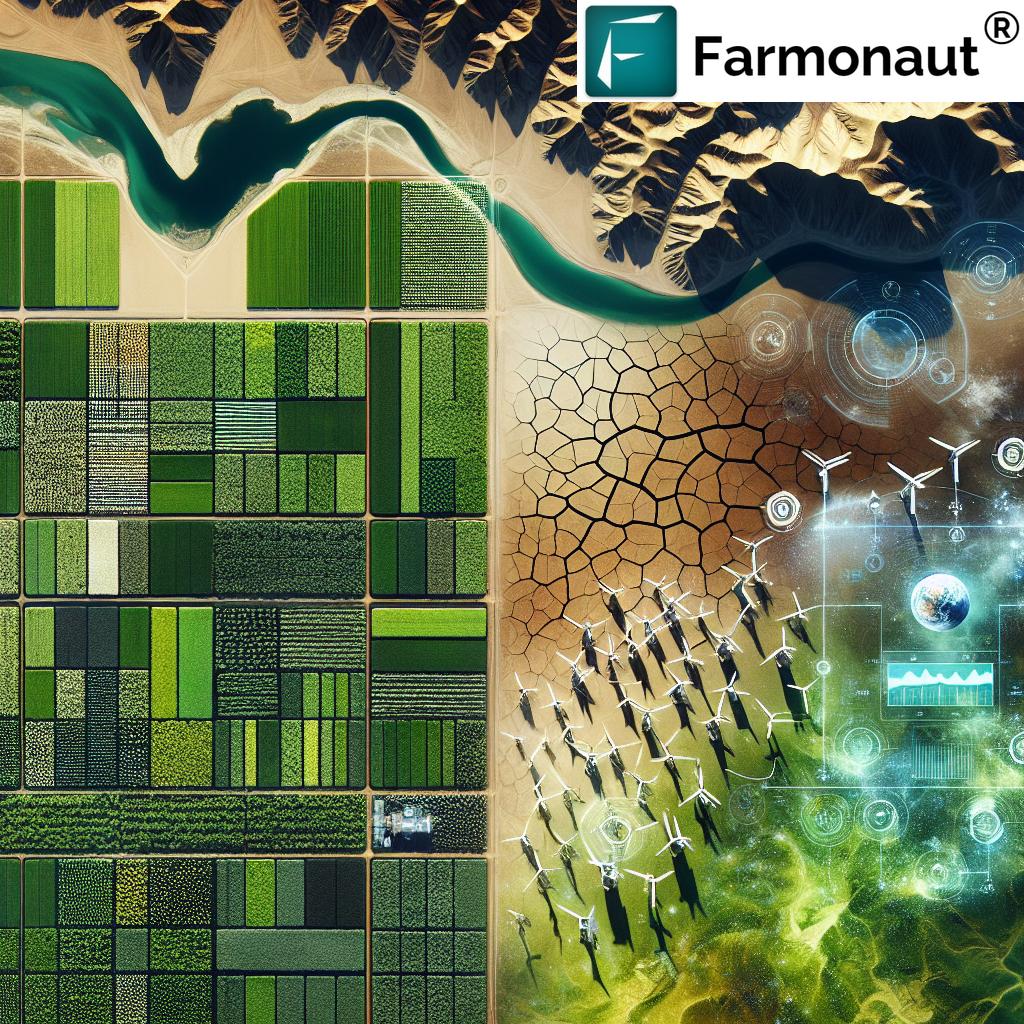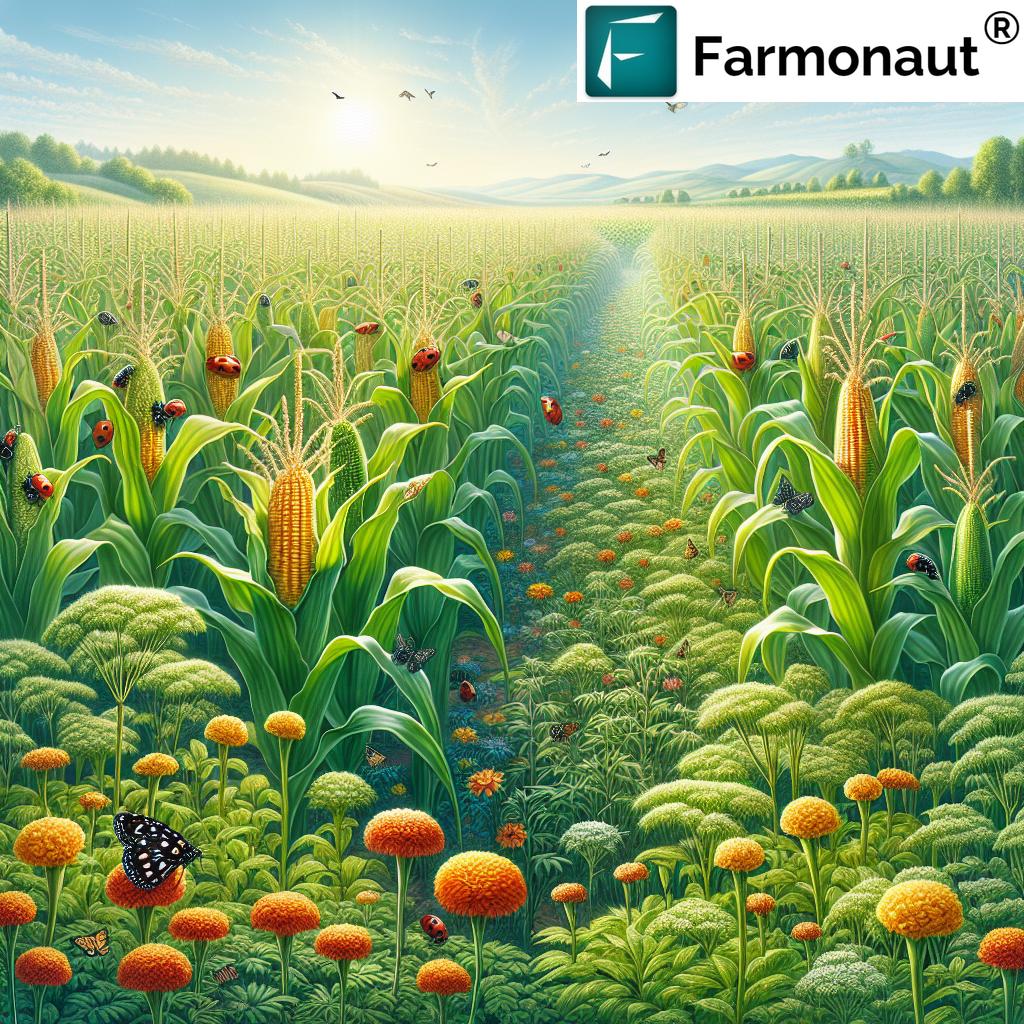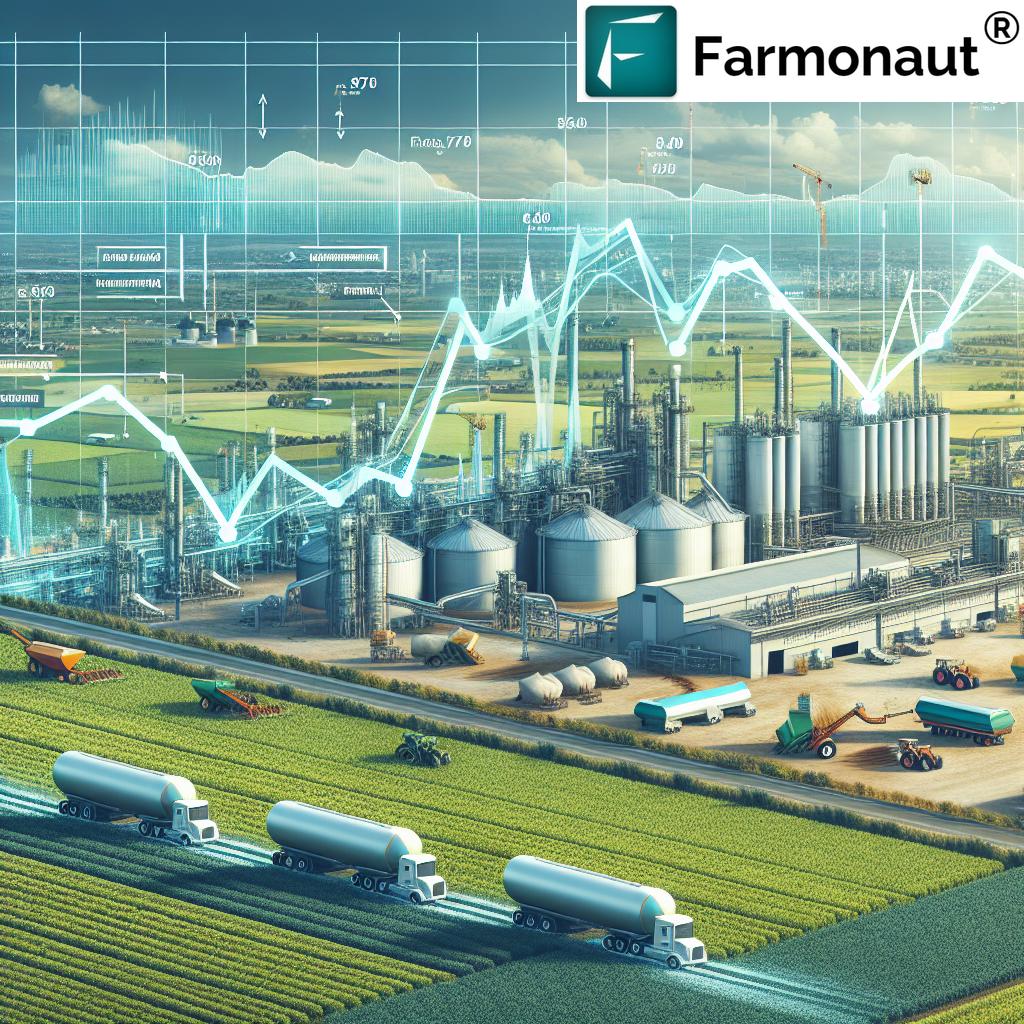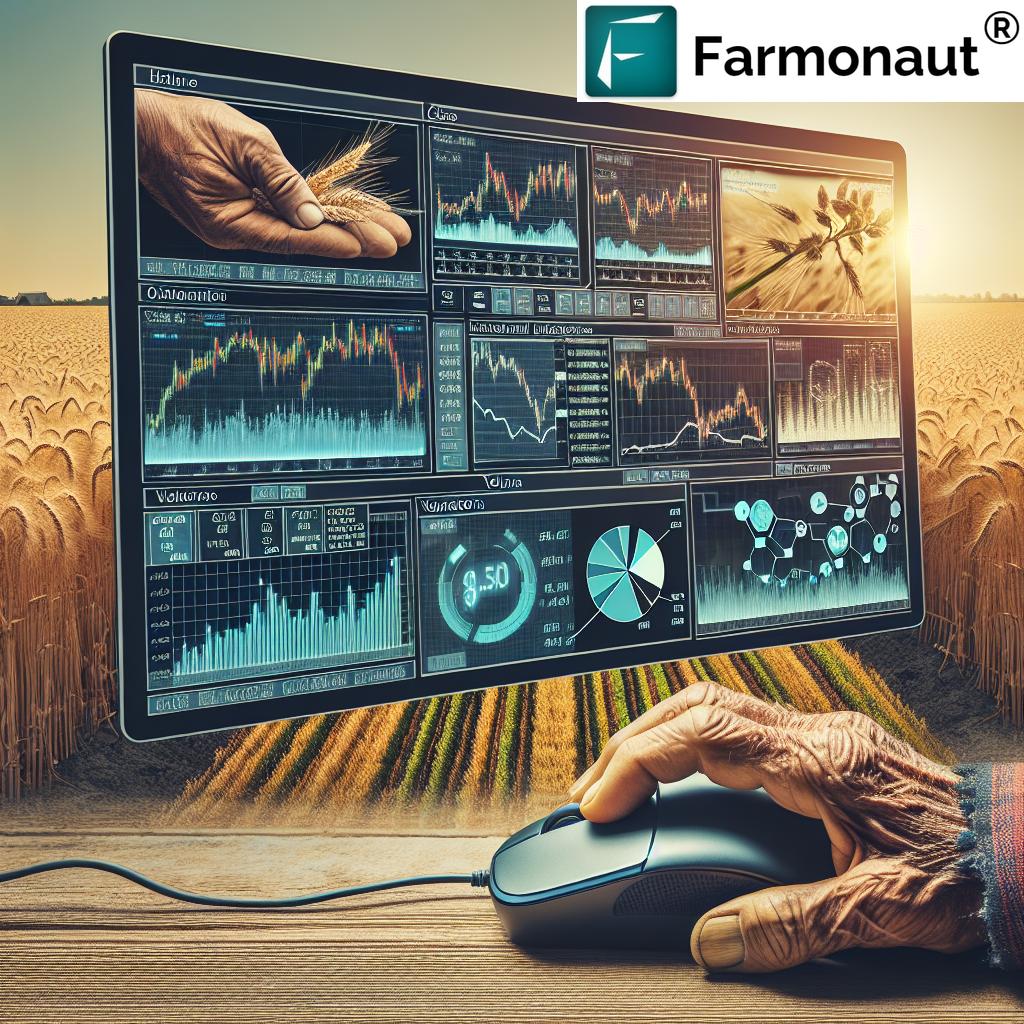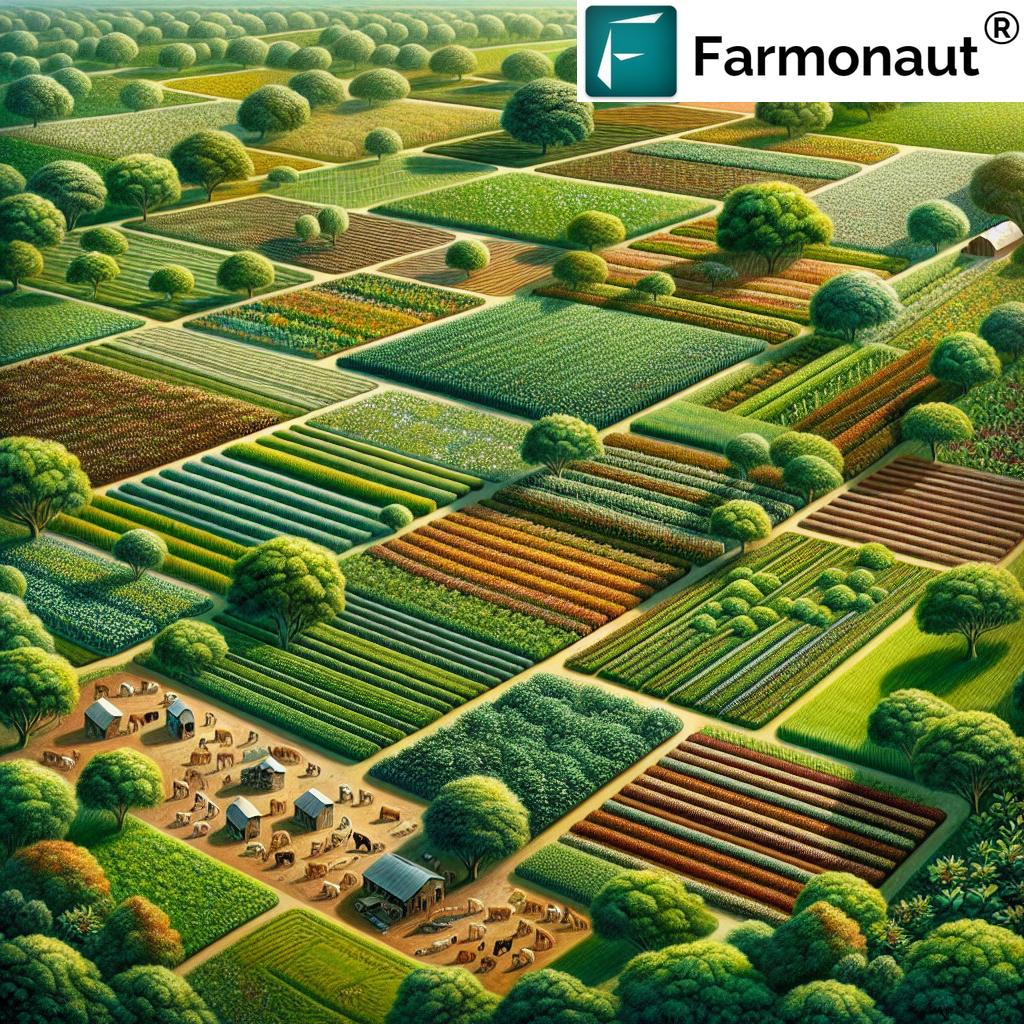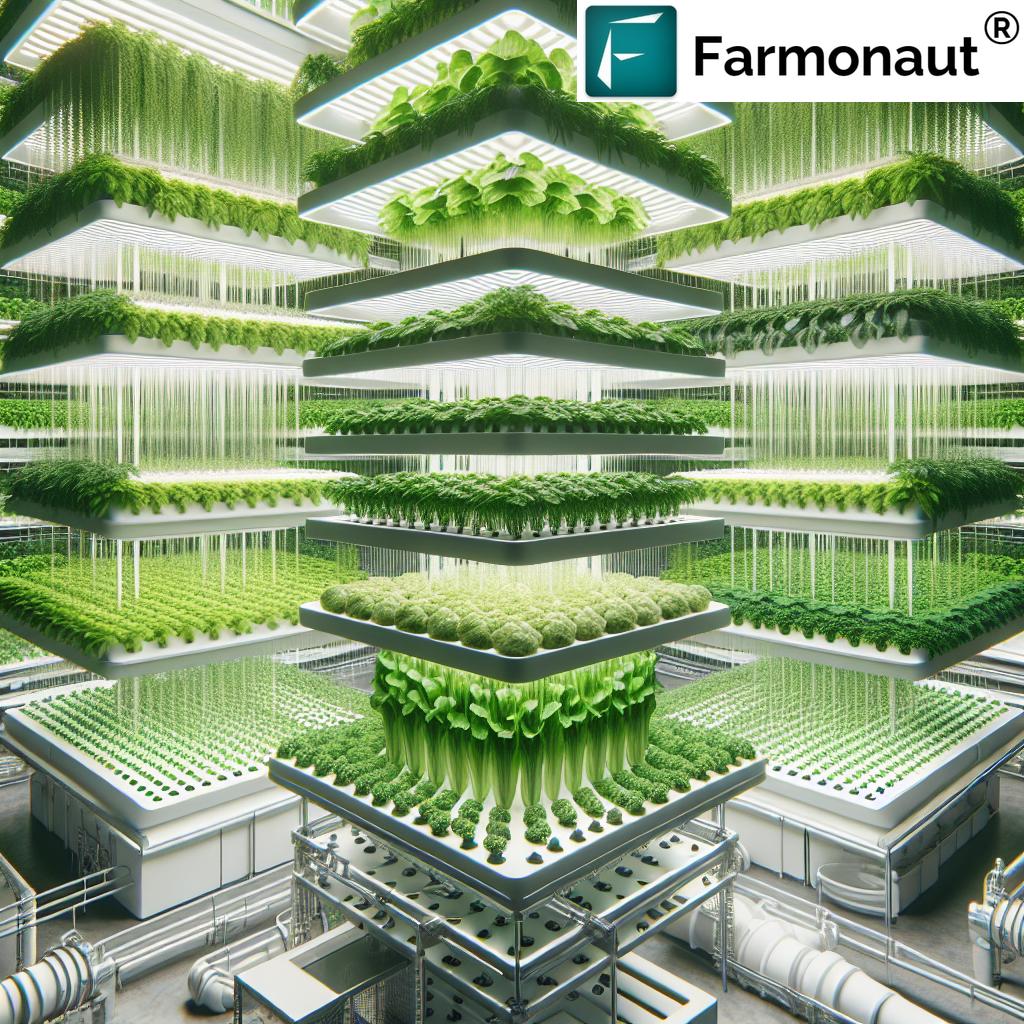Sustainable Agriculture Investment Opportunities: 5 Shocking Ways to Boost Returns
“Investing in regenerative agriculture can increase farm profitability by up to 78% compared to conventional methods.”
Introduction: The Growing Demand for Sustainable Agriculture Investment Opportunities
As global population is projected to reach 9.7 billion by 2050, the demand for food is expected to increase by 70%. Traditional farming methods—often reliant on chemical inputs and monoculture—are increasingly unsustainable, leading to soil degradation, water scarcity, and diminished biodiversity.
Sustainable agriculture integrates environmental health, economic profitability, and social equity, and is not just a moral imperative—it’s a necessity for future food security. Fortunately, investing in sustainable agriculture delivers both attractive financial returns and measurable environmental benefits. With innovative approaches—from regenerative agriculture to integrated farming systems—we can truly transform the sector and boost diversified farm income.
Why Sustainable Agriculture is Essential for the Future
- Rapidly increasing population pressures natural resources.
- Soil health and biodiversity are declining globally.
- Traditional agriculture methods generate high greenhouse gas emissions and deplete water resources.
- Farm income volatility is increasing due to climate change, market fluctuations, and resource scarcity.
- Sustainable practices offer improved resilience and better long-term returns for investors and farmers alike.
By integrating innovative, environmentally responsible agricultural practices and investing in efficient, resilient operations, we address pressing global challenges. Regenerative agriculture practices, agroforestry investment opportunities, and integrated farming systems provide scalable solutions—for both our planet and our portfolios.
Key Sustainable Agriculture Practices & Integrated Systems
Let’s explore some cornerstone sustainable farming methods that form the foundation for resilient, profitable agriculture.
1. Agroforestry: Integrating Trees, Crops, and Livestock
- Agroforestry systems combine trees with crops or livestock.
- Benefits: Enhanced biodiversity, improved soil health, increased resilience to climate change.
- Multiple income sources: Timber, fruits, nuts, non-timber products.
- Reduces greenhouse gas emissions through carbon sequestration.
2. Silvopasture: Blending Forests and Grazing Systems
- Silvopasture involves integrating trees with livestock (grazing animals).
- Boosts soil fertility, provides shade, and enables diversified income from both tree and animal products.
- Method reduces carbon emissions and increases carbon sequestration.
3. Integrated Farming Systems: Holistic & Resource-Efficient
- Optimally combines crop cultivation, livestock rearing, and aquaculture.
- Reduces waste, maximizes resource efficiency, promotes biodiversity and climate resilience.
- Supports improved yields and soil health.
4. Regenerative Agriculture Practices
- Focusing on restoring soil health and biodiversity.
- Key practices: No-till farming, cover cropping, rotational grazing.
- Leads to increased yields and extensive carbon sequestration.
Key Takeaway:
By investing in these environmentally responsible agriculture systems, we don’t just meet current needs—we protect our capacity to meet the needs of future generations.
“Integrated sustainable systems can improve soil health by 30% within just five years of implementation.”
Top 5 Shocking Ways to Boost Returns: Sustainable Agriculture Investment Opportunities
-
Regenerative Agriculture Projects
- Regenerative agriculture practices restore soil health, promote biodiversity, and sequester carbon.
- Practices include no-till farming, cover cropping, and rotational grazing.
- Leads to improved yields, reduced dependency on chemical inputs, higher farm profitability, and long-term soil resilience.
- Investor benefit: Long-term, stable returns with strong sustainability impact.
Regenerative practices are rapidly adopted worldwide as they address both climate change mitigation and agricultural productivity.
Read more about Farmonaut’s Carbon Footprinting technology that enables monitoring and management of emissions, supporting sustainable farming methods and compliance. -
Agroforestry Investment Opportunities
- Agroforestry projects deliver income from timber, fruits, nuts, and specialty forest products.
- Enhances ecosystem services, improves resilience, and increases carbon sequestration.
- Diversifies farm revenue streams and offers attractive investment returns with long-term environmental value.
- Investor benefit: Portfolio diversification, ongoing income, and lasting environmental impact.
Explore how Farmonaut’s Crop Plantation & Forest Advisory provides satellite-based insights and AI recommendations for optimizing agroforestry systems, enhancing yields, and supporting sustainable forest management.
-
Sustainable Livestock Operations via Silvopasture Systems
- Silvopasture combines forestry with livestock grazing in integrated ecosystems.
- Reduces greenhouse gas emissions, improves soil health, creates diversified revenue through animal and tree products.
- Supports climate resilient agriculture by increasing adaptability to environmental changes.
- Investor benefit: Multiple income streams and improved land utilization.
Farmonaut’s Large-Scale Farm Management Solutions offer powerful monitoring and resource management capabilities for silvopasture and integrated farming operations—making sustainable diversification scalable.
-
Integrated Farming Systems & Aquaculture Ventures
- Combines crop cultivation, livestock rearing, and aquaculture for resource optimization.
- Reduces waste output, enhances soil fertility, and enables efficient water use.
- Increases system resilience against market and climate shocks, fostering diversified farm income.
- Investor benefit: Resilient business models and improved economic sustainability.
Maximize productivity through Farmonaut’s Fleet Management—one of the most efficient tools for supervising farm equipment and logistics across diverse agricultural systems and reducing operational costs.
-
Organic & Traceable Agri-Products (Blockchain-Based)
- Leveraging blockchain for complete supply chain transparency in organic and traceable agricultural products.
- Offers supply chain authentication, strengthens consumer trust, and can unlock green premiums in niche markets (textile, food, etc.).
- Investor benefit: Added value, reduced fraud, and process automation.
Discover how Farmonaut’s Blockchain-Based Product Traceability enhances traceability from farm to shelf, building trust and reducing risks in organic and sustainable produce.
Comparative Table: Sustainable Agriculture Investment Opportunities
Use this table to compare leading sustainable agriculture investment opportunities based on estimated returns, initial costs, timeframe, and sustainability impact.
| Investment Type | Avg. Estimated Return (%) | Initial Investment Required (USD) | Return Timeframe (years) | Sustainability Impact | Example Practices/Systems |
|---|---|---|---|---|---|
| Regenerative Agriculture | 12% – 18% | $1,000 – $2,000/ha | 4-8 | High (Carbon, Biodiversity, Soil Health) |
No-till farming, cover cropping, rotational grazing |
| Agroforestry | 10% – 22% | $2,500 – $8,000/ha | 6-12 | High (Carbon, Resilience, Income Diversity) |
Trees + crops, timber, fruits, nuts integration |
| Silvopasture Systems | 10% – 16% | $2,000 – $6,000/ha | 5-9 | High (GHG Reduction, Soil Fertility) |
Integrated forestry + livestock grazing |
| Integrated Farming/Aquaculture | 15% – 23% | $3,400 – $7,200/ha | 4-7 | High (Water, Waste, Biodiversity) |
Crop-livestock-aquaculture integration |
| Organic/Blockchain Traceable Products | 8% – 14% | $600 – $3,800/ha | 3-5 | Medium–High (Trust, Market Premium) |
Blockchain traceability, certification systems |
How Farmonaut Empowers Sustainable Agriculture Investment
Investing in sustainable agriculture reaches new heights when we leverage digital platforms like Farmonaut. Here’s how Farmonaut enables sustainable, resilient, and data-driven agricultural systems:
- Satellite-Based Crop Health Monitoring: Real-time satellite imagery (NDVI, soil moisture, vegetation health) for precision crop and soil management—reducing waste while increasing yields.
- AI-Driven Advisory: Jeevn AI system delivers targeted farm advice, weather insights, and crop management strategies, optimizing operations and promoting efficient resource use.
- Carbon Footprinting: Track and reduce emissions for compliance and climate-smart agriculture (Carbon Footprinting Solution).
- Blockchain Traceability: Ensure full visibility and trust across agri-value chains—essential for premium, traceable organic products (Traceability Solution).
- Fleet & Resource Management: Optimize and monitor logistics (Fleet Management), reducing operational costs for smallholders and agribusinesses alike.
With affordable access via web, Android, and iOS apps, Farmonaut makes precision farming accessible to anyone, anywhere—supporting your journey towards sustainable agriculture success.
Apps, APIs & Digital Tools: Driving Efficiency in Sustainable Agriculture
- Farmonaut Web & Mobile Apps: Access real-time crop health monitoring, resource management tools, and blockchain-based traceability through any device. Launch the Farmonaut App here →
-
Farmonaut API: Developers and agribusinesses can integrate satellite and weather data directly into their own applications or platforms.
For integration details, refer to the Farmonaut API Developer Docs. - Loans & Insurance for Climate-Resilient Investors: With satellite-based farm verification (Crop Loan & Insurance Solution), access to credit is streamlined, fraud is reduced, and investments are derisked.
Challenges & Considerations in Sustainable Agriculture Investment
- Contextual Adaptation: Climate, soil types, and cultural practices vary widely; investing in on-ground research and advisory is crucial.
- Initial Costs: Transitioning to sustainable farming methods often involves upfront investments in technology or new systems, but long-term viability and profitability generally outweigh early expenses.
- Supply Chain Complexity: Especially with integrated or organic operations, a robust, traceable supply chain is essential to securing premiums and maintaining trust.
- Education & Mindset: Adoption of regenerative agriculture practices and data-driven management requires farmer education and demonstration of economic benefits.
- Policy & Incentives: Navigating available subsidies and government incentives for sustainable agriculture can enhance profitability and reduce risk.
- Market Access: Building connections to premium/specialty markets and ensuring product traceability (especially important for organic, fair-trade, or certified sustainable products) can increase returns.
Succeeding as an Investor:
- Invest in platforms (like Farmonaut) that provide real-time monitoring and analytics.
- Support education and resource-sharing to accelerate sustainable practice adoption.
- Consider a phased approach to scaling up investments as systems become established and returns stabilize.
Farmonaut Subscription Options
Ready to take your sustainable agriculture investments to the next level? Explore Farmonaut’s flexible subscription packages, designed for everyone—from smallholder farmers to large agribusinesses. Choose only the services you need, scale as your operations grow, and enjoy affordable, high-impact satellite and AI-powered farming technologies.
Frequently Asked Questions (FAQ)
1. What is sustainable agriculture, and how does it differ from traditional farming?
Sustainable agriculture is an approach that balances current food production needs with long-term soil health, biodiversity, and environmental stewardship. It adopts methods like crop rotation, agroforestry, and integrated resource use—reducing overuse of inputs, enhancing resilience, and promoting economic and social equity.
2. Which sustainable agriculture investment opportunities offer the highest returns?
Integrated farming systems, regenerative agriculture ventures, and agroforestry projects tend to offer the highest overall returns because they combine productivity, climate resilience, and diversified income streams—see our comparative table above for specific numbers.
3. How do digital technologies like Farmonaut improve sustainable agriculture investments?
Farmonaut’s platform provides real-time monitoring, AI advisories, and blockchain-based tracking, which reduce waste, lower input costs, increase yields, and facilitate compliance—maximizing both profitability and sustainability.
4. What role does carbon sequestration play in investment decisions?
Carbon sequestration (trapping CO2 in soil or biomass) is a major benefit of regenerative agriculture and agroforestry. Investors increasingly value projects that provide verifiable carbon benefits, often securing credits or green finance premiums (see Farmonaut’s Carbon Footprinting).
5. How is traceability important for sustainable agriculture products?
Traceability helps ensure product authenticity, reduces fraud, and allows consumers to choose sustainable options. Blockchain-based systems (like Farmonaut’s) deliver transparency for food, textiles, and more (learn more about Product Traceability).
6. Can Farmonaut’s solutions be integrated into existing agri-software?
Yes. Through our public API and detail-rich developer documentation, businesses and developers can embed satellite and climate data into their current software platforms.
7. How affordable are digital precision agriculture solutions?
Farmonaut is committed to making precision agriculture affordable and scalable—even for small to mid-sized farms. Our satellite-based solutions remove the need for costly on-farm hardware, offering cost-effective decision-support across the globe.
8. Is Farmonaut a marketplace, manufacturer, or regulator?
No. Farmonaut is not an online marketplace or input provider, nor is it a regulatory body. We are an agricultural technology company offering satellite-based and AI-driven software tools for digital farm management, traceability, and sustainability.
Conclusion: Sustainable Agriculture – A Profitable & Impactful Investment for the Future
The future of agriculture is sustainable—integrating productivity, biodiversity, soil health, and environmental stewardship with solid financial returns. By exploring the five transformative sustainable agriculture investment opportunities detailed in this guide, we position ourselves to drive both profitability and positive climate impact.
As investors, farmers, or agri-professionals, we can:
- Boost farm and portfolio resilience against global environmental and market shocks,
- Improve yields, income diversity, and long-term returns,
- Support climate-change mitigation and adaptation,
- Promote equity for current and future generations.
Through platforms like Farmonaut, anyone can become a catalyst for sustainable change—making advanced monitoring, traceability, and resource management accessible to all. Whether you’re a smallholder in Asia, an agribusiness in Africa, or an impact investor in Europe, the opportunities in climate resilient agriculture have never been more compelling—or more accessible.
Take the next step: Explore digital tools, choose resilient systems, and invest in a future where agriculture supports, not compromises, the potential of the next generation.


